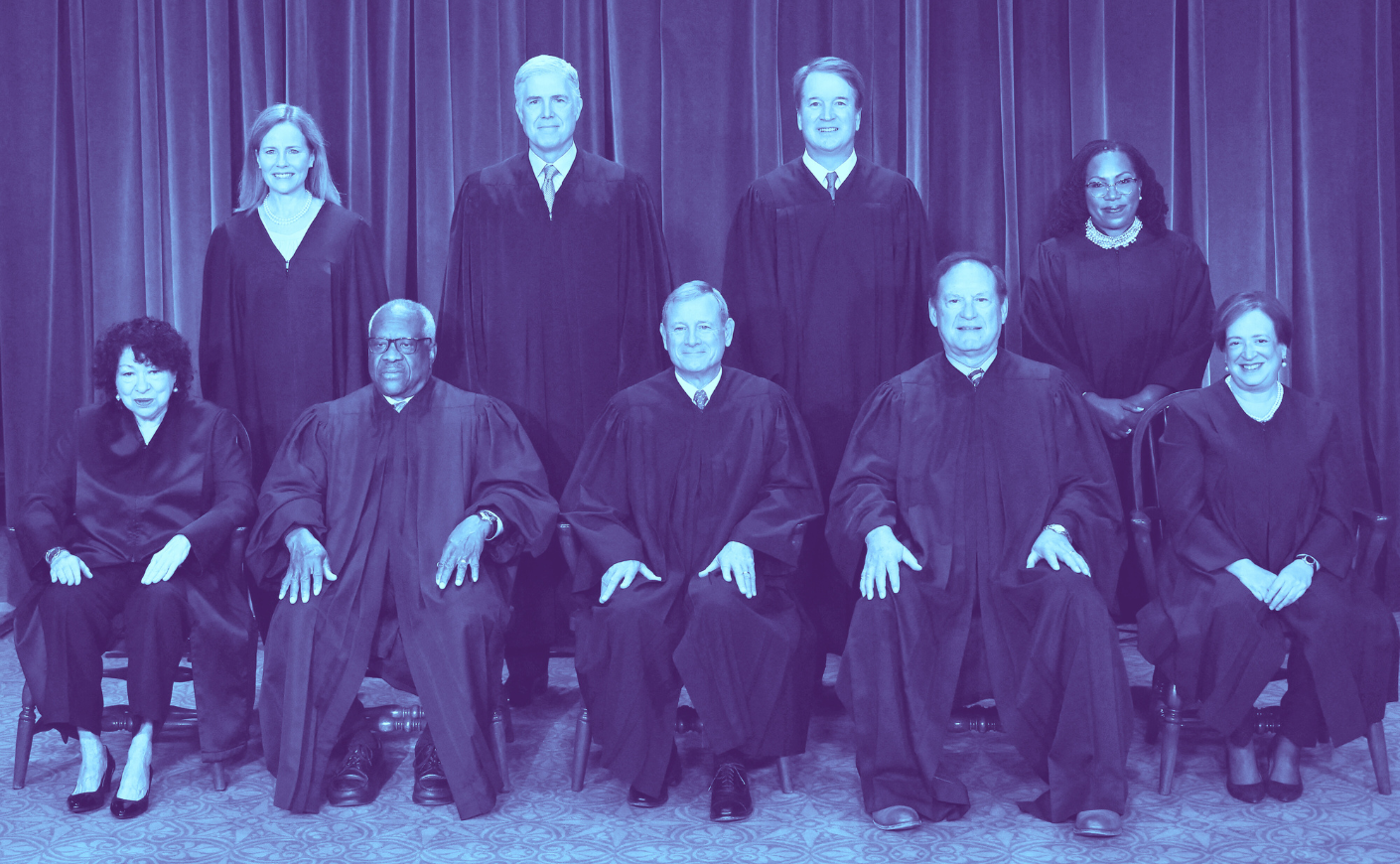President Biden is pushing for sweeping changes to the Supreme Court. In an op-ed for The Washington Post, he called for a constitutional amendment limiting presidents' immunity, implementing term limits on justices, and stipulating an enforceable code of ethics.
“This nation was founded on a simple yet profound principle: No one is above the law. Not the president of the United States. Not a justice on the Supreme Court of the United States. No one,” Biden wrote.
Watch Katie discuss Biden's big move with legal expert Neal Katyal in the video below:
This announcement marks an about-face for the president, who has long resisted calls from some of his fellow Democrats to reform the high court over fears that it could politicize it.
So why did he shift his views now? Here’s a closer look at the changes he wants to implement and whether they’re feasible given the thinly divided Congress.
What changes has Biden proposed for the Supreme Court?
Biden’s proposal is three-fold: The first change he wants is the No One Is Above the Law Amendment, which would “make clear that there is no immunity for crimes a former president committed while in office." This would be a reversal of the Supreme Court’s ruling in July that found that the commander-in-chief cannot be prosecuted for "official acts" during their time in office, but it wouldn’t apply to state indictments. “I share our Founders’ belief that the president’s power is limited, not absolute,” Biden writes in his op-ed. “We are a nation of laws — not of kings or dictators.”
Next, he wants to set 18-year term limits for the nine justices, and give the sitting president the power to appoint a new justice every two years. “The United States is the only major constitutional democracy that gives lifetime seats to its high court,” Biden states. “Term limits would help ensure that the court’s membership changes with some regularity.”
Last but not least, he endorses a binding code of conduct for the Supreme Court, which has faced intense public pressure on its ethics standards following reports of Justice Clarence Thomas and other justices accepting lavish trips and gifts from billionaires. (For the record, Justice Elena Kagan backed this very idea last week at an annual judicial conference in California.) “Every other federal judge is bound by an enforceable code of conduct, and there is no reason for the Supreme Court to be exempt,” Biden explains.
Why is Biden reversing his position on Supreme Court reforms?
Before Monday’s announcement, Biden had been reluctant to support significant Supreme Court changes backed by the party's more progressive wing. However, his position changed once the court started to veer to the right after former President Trump appointed Justices Neil Gorsuch, Brett Kavanaugh, and Amy Coney Barrett to the high court. Since then, the president has been particularly critical of the conservative majority’s decisions on key issues, like abortion rights.
Biden’s proposals also have Vice President Kamala Harris’s stamp of approval. “These popular reforms will help to restore confidence in the Court, strengthen our democracy, and ensure no one is above the law,” the likely Democratic nominee said in response to the reforms.
Emily Amick, a journalist and lawyer who previously worked on Capitol Hill, tells Katie Couric Media that Biden’s changes mark “a massive shift in the rhetoric coming from Democratic leadership.”
"As someone who's worked in politics for nearly 20 years, there was a long time when I thought something like this would never happen,” says Amick, who formerly was counsel to Senate Majority Leader Chuck Schumer. “This is incredible leadership from the Biden/Harris Administration and a call for all of us to keep fighting to fix this corrupt Supreme Court."
Do Biden’s reforms really have a chance of passing?
These fixes are largely seen as aspirational since they don't have very strong odds of passing in a divided Congress. Both term limits and the ethics code would need 60 votes to pass the Senate to block a Republican filibuster. (As it currently stands, Democrats hold only 51 seats in the upper chamber.)
But some remain optimistic if Democrats win big in November. “Congressional action is well within grasp if Democrats take the House and the Presidency and have 50 people in the Senate who are willing to pierce the filibuster for these reforms,” says Amick.









